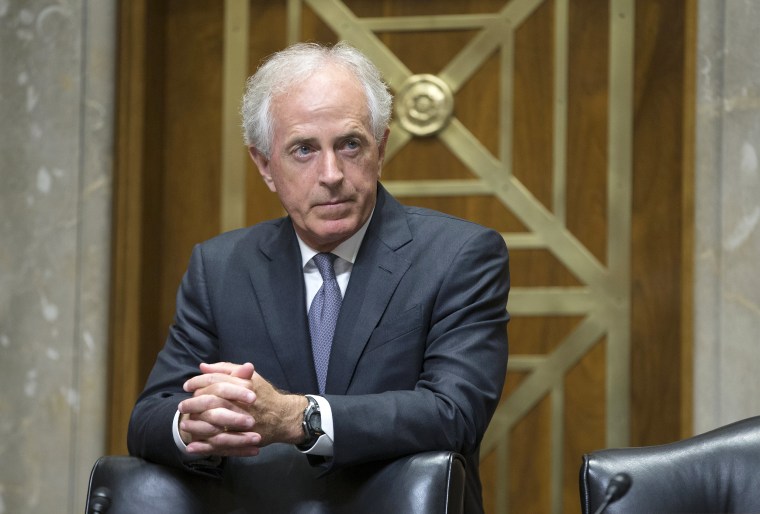WASHINGTON — The Senate easily passed legislation Thursday that would impose additional sanctions against Russia and limit the president's power to lift them in the future.
The Senate passed the bill, which also includes additional sanctions on Iran, by an overwhelming 98-2 vote with Sens. Rand Paul, R-Ky. and Bernie Sanders, I-Vt. voting against it.
The measure will now go to the House of Representatives where the path forward is not clear. "The speaker was a vocal proponent of the last round of sanctions and believes we must do more to hold Russia accountable," said AshLee Strong, a spokesperson for House Speaker Paul Ryan. "The Foreign Affairs Committee is reviewing the details in this latest sanctions package being voted on in the Senate, and after that we will determine a path ahead in the House."
If it passes the House, President Donald Trump would have to either sign or veto a bill that the White House has had little response to so far.
White House Principle Deputy Press Secretary Sarah Huckabee Sanders said the administration remains "committed" to the existing sanctions against Russia, calling them the "best tool" for compelling Russia to honor its commitments to resolve the conflict in Ukraine. Asked if they felt handcuffed by the Senate actions, Sanders demurred, saying that because the process was still ongoing, there was no final product to weigh in on.
The sanctions are in response to a trio of Russian actions, including their interference in the 2016 election, engagement in Syria and invasion of Crimea. Trump has been reluctant to address Russian’s involvement and has repeatedly praised the country and President Vladimir Putin.
The addition of Russian sanctions to the bill was a rebuke to the president because it would prohibit the president from being able to lift them without Congressional approval.
Secretary of State Rex Tillerson had encouraged the Senate to hold off on more sanctions, saying that he’d like more time to try and work diplomacy with Russia.
“I would hope to allow the diplomatic efforts to attempt to make some progress,” Tillerson said earlier this week. “If we cannot make some progress, and I have told others in the Senate, I have had conversations with them, I may very well be coming to you and saying the time has come now to do this in order to motivate some movement on their part.”
But the Senate moved forward anyway.
Related: Senate Strikes Deal on Russia Sanctions
Sen. Bob Corker, R-Tenn., chair of the Senate Foreign Relations Committee and co-author of the bill, said he’s been updating the State Department.
“We’ve been interacting with the state department and, again, we’ll see what happens,” he told reporters.
The sanctions would codify existing economic restrictions and place new ones in an effort to economically harm specific individuals and Russia's economy.
Sanctions would be placed on Russians who violate human rights, supply weapons to the Bashar al-Asad regime in Syria or who are involved in the Russian defense and intelligence industry. It also places additional sanctions on specific industries, including the country's mining, shipping and railway industry.
Sanders said he voted against the larger bill because he said sanctioning Iran could harm the Iranian nuclear deal. "I am strongly supportive of the sanctions on Russia included in this bill," Sanders said in a statement. "But I believe that these new sanctions could endanger the very important nuclear agreement that was signed between the United States, its partners and Iran in 2015."
In another challenge to Trump’s foreign policy, the measure also “reaffirm the strategic importance” of NATO. While Trump recently said he, too, supports NATO, he failed to do so at a NATO meeting in Brussels, worrying the alliance’s supporters and members.

